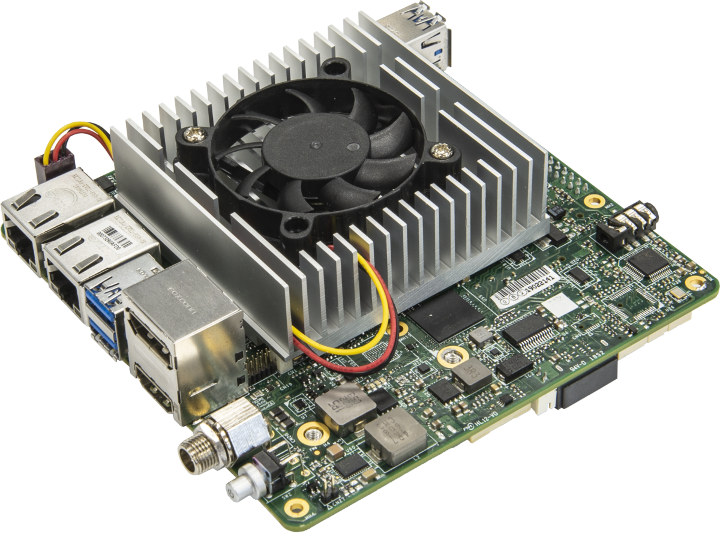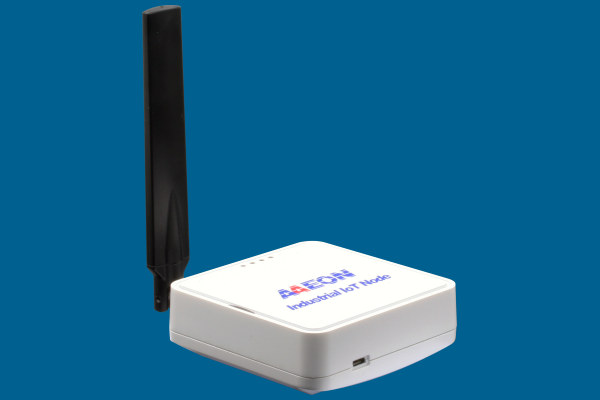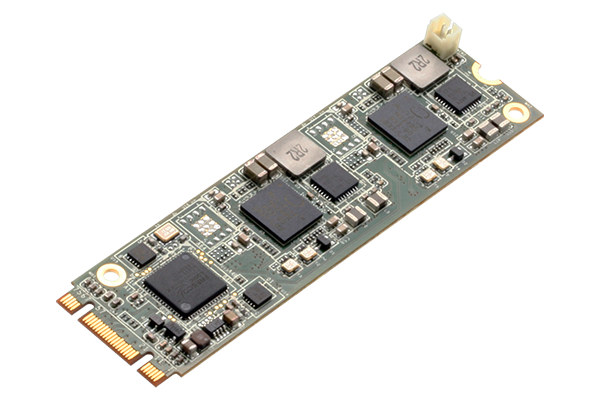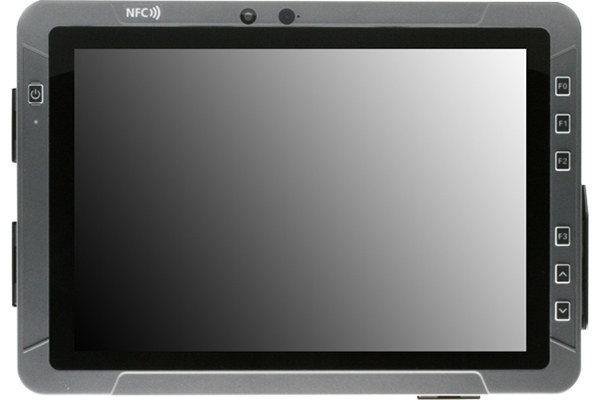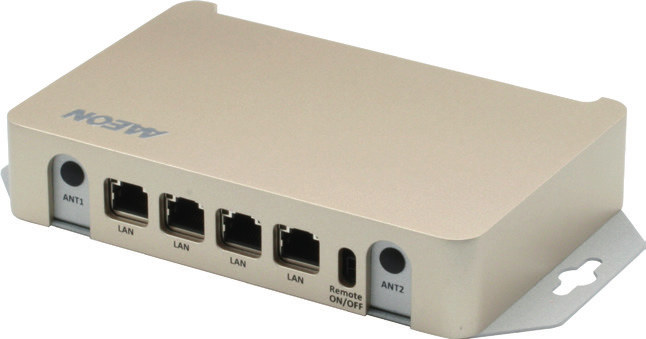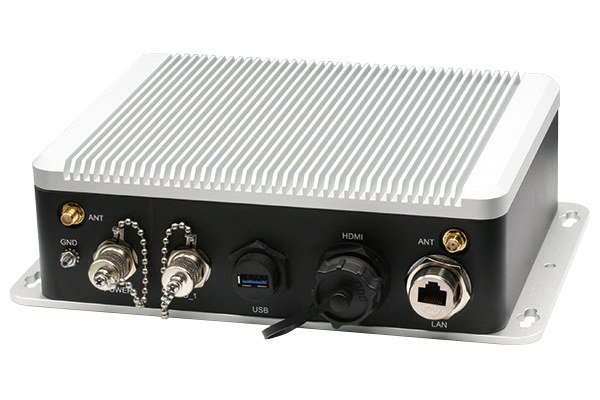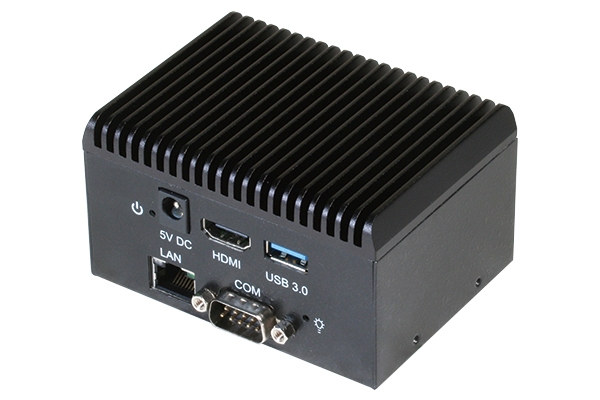Back in March, I was tipped about AAEON’s upcoming UP Xtreme Whiskey Lake board equipped with Intel’s latest 15W processors, and providing a boost in performance compared to their previous UP boards, including UP Squared board introduced in 2016 with a choice of Apollo Lake processors. The company has now finally launched a Kickstarter campaign to let the public pledge for UP Xtreme SBC for €249 and up. UP Xtreme Whiskey Lake-U SBC specifications: SoC (one or the other) Intel Celeron 4305UE dual-core processor @ up to 2.2 GHz with 2MB cache, Intel UHD 610 graphics Intel Core i3-8145UE dual-core 4-thread processor @ up to 2.1 GHz / 3.9 GHz (Turbo) with 4MB cache, Intel UHD 620 graphics Intel Core i5-8365UE quad-core 8-thread processor @ up to 1.6 GHz / 4.1 GHz (Turbo) with 6MB cache, Intel UHD 620 graphics Intel Core i7-8665UE quad-core 8-thread processor @ up to 1.9 […]
AIOT-ILND01 LoRa Node Comes with AA Battery Holder, Grove Connectors, Optional Enclosure
AAEON specializes in industrial and embedded computing platforms, and usually their products are fairly powerful Windows or Linux based computers, gateways, or network appliances. But in order to provide a complete LoRa solution to system integrators, the company has now introduced AIOT-ILND01 LoRa node powered by STMicro STM32 MCU, and compatible with their AIOT-IP6801IP68 IoT Gateway, as well as other LoRa gateways. AIOT-ILND01 LoRa node specifications: MCU – STMicro STM32L Arm Cortex-M3 MCU @ 32 MHz Connectivity 868MHz/915 MHz LoRa via Semtech SX1276 chipset 1x SMA antenna hole, 1x IPEX antenna hole Sensors – Temperature & humidity sensor, 3-axis accelerometer Expansion – 3x GROVE connectors: 1x UART1 (RS-232/422/485), 1x UART2 (Tx/Rx), 1x I2C Misc – 4x user LEDs, boot select button, 2x user buttons, 1x reset button Debugging – JTAG header Power Supply 5V via micro USB port Battery holder for 2x 14500 rechargeable Lithium-ion battires or AA batteries Dimensions […]
AI Core XM2280 M.2 Card is Equipped with two Myriad X 2485 VPUs
AAEON released UP AI Core mPCIe card with a Myriad 2 VPU (Vision Processing Unit) last year. But the company also has an AI Core X family powered by the more powerful Myriad X VPU with the latest member being AI Core XM2280 M.2 card featuring not one, but two Myriad X 2485 VPUs coupled with 1GB LPDDR4 RAM (512MB x2). The card supports Intel OpenVINO toolkit v4 or greater, and is compatible with Tensorflow and Caffe AI frameworks. AI Core XM2280 M.2 specifications: VPU – 2x Intel Movidius Myriad X VPU, MA2485 System Memory – 2x 4Gbit LPDDR4 Host Interface – M.2 connector Dimensions – 80 x 22 mm (M.2 M+B key form factor) Certification – CE/FCC Class A Operating Temperature – 0~50°C Operating Humidity – 10%~80%RH, non-condensing The card works with Intel Vision Accelerator Design SW SDK available for Ubuntu 16.04, and Windows 10. Thanks to the two […]
UP Xtreme Board to Feature Intel Whiskey Lake Processor
AAEON launched their UP board family back in 2015 with the original board featuring an Atom X5 Cherry Trail processor. Since then they’ve launched other models all based on processors with 10W or lower TDP (Thermal Design Power) such as UP Squared Apollo Lake development board. But the company has now upped the ante by going with Intel Core-U series Whiskey Lake processors (15W TDP) in their upcoming UP Xtreme single board computer (SBC) that will feature some of those Core i3/i5/i7 processors. UP Xtreme specifications: SoC- Intel Dual/Quad Core “Whiskey Lake” Core i3/i5/i7 processor @ 1.8 GHz (Boost frequnecy up to 3.9GHz for i3/i5, up to 4.6 GHz for i7) with Intel UHD graphics 620; 15W TDP System Memory – Up to 16GB dual-channel DDR4 memory (soldered on-board) Storage – 16GB to 128GB eMMC 5.1 flash, 1x SATA connector with power connector Video Output 1x eDP with backlight control […]
AAEON RTC-1010M Semi Rugged Tablet Runs Windows 10 IoT or Android 9
AAEON has introduced a new semi-rugged Intel Apollo Lake tablet with a 10.1” sunlight readable screen, IP54 certification, and optional modules such as a smart card reader, magnetic stripe reader (MSR) and 2D barcode scanner, as well as various mounting options from docking mounts to shoulder belts. The choice of operating system is also interesting for AAEON RTC-1010M tablet as it will come with Windows 10 IoT by default, and support for Android 9 is planned for Q2 2019. AAEON RTC-1010M tablet specifications: SoC (One or the other) Intel Celeron N3350 dual core processor @ 1.1 GHz / 2.4GHz (Turbo) with Intel HD graphics; 6W TDP Intel Pentium N4200 quad core processor @ 1.1GHz / 2.5GHz (Turbo) with Intel HD graphics; 6W TDP System Memory – 4 GB DDR3L (Default), up to 8GB Storage – 64GB eMMC flash, microSD card slot, optional mSATA III drive up to 512GB Display – […]
BOXER-8120AI is a Compact Jetson TX2 Mini PC for Drones, Robots and Surveillance Applications
AAEON has just launched BOXER-8120AI compact mini PC based on NVIDIA Jetson TX2 processor module with 8GB RAM, 32GB storage, and four Gigabit Ethernet ports. The fanless mini PC targets smart surveillance/ security/ parking, unmanned stores, drones and robotic controllers, or any applications that can leverage Jetson TX2’s 256 CUDA cores for A.I. workloads. BOXER-8120AI Jetson TX2 Mini PC specifications: Processor Module – NVIDIA Jetson TX2 with HMP Dual Denver 2 + Quad Arm A57, NVIDIA Pascal GPU with 256 CUDA cores, 4K (HEVC) video encoder, 4K 12-bit video decoder System Memory – 8GB LPDDR4 @ 59.7 GB/s Storage – 32GB eMMC 5.1 flash, MicroSD slot Display Interface – HDMI 2.0 type A Networking – 4x 10/100/1000Base-TX Ethernet USB – 2x USB 3.0 ports, 1x micro USB OTG port Serial – 2x COM ports (DB9) Misc – Power Button, Power LED, 2x SMA Holes, Remote Power On/Off Power Supply – […]
AAEON AIOT-IP6801IP68 IoT Gateway Handles Rough Environments
There are plenty of IoT gateways to play with, but if your gateway needs to operate in rough environments, like outdoors or on a boat, you’d need to find one that is water and dust proof event for your environment. AAEON AIOT-IP6801 IoT gateway should meet most people requirements with IP68 ingress protection rating, an Intel Apollo Lake processor, up to 4GB memory, 32GB eMMC flash, built-in support for Ethernet, WiFi 802.11ac and Bluetooth 4.0, as well as optional support for LoRa, 3G/4G LTE, and IQRF connectivity. AAEON AIOT-IP6801 IP68 IoT gateway specifications: SoC (one or the other) Intel Atom E3940 quad-core processor clocked at 1.6 GHz / 1.8 GHz (Turbo) with a 12 EU Intel HD Graphics 500; 9.5W TDP Intel Celeron N3350 dual-core processor clocked at 1.1 GHz / 2.4 GHz (Turbo) with a 12 EU Intel HD Graphics 500; 6W TDP Memory – 2GB or 4GB LPDDR4 […]
AAEON UPC-GWS01 is Tiny IoT Gateway Powered by UP Core Board
AAEON’s UP Core is an affordable and compact Intel Atom x5-Z8350 based board that was launched last year on Kickstarter for 69 Euros and up. The company has now integrated the board into at least one of their product with UPC-GWS01, a tiny IoT gateway with WiFi and Bluetooth connectivity, as well as support for optional 3G/4G LTE connectivity via a mini PCIe slot. A carrier board for UP Core also added Ethernet and a DB9 serial port to the setup. AAEON UPC-GWS01 specifications: SoC – Intel Atom x5-Z8350 quad core Cherry Trail processor with Intel HD 400 graphics System Memory – 1GB/ 2GB/ 4GB onboard DDR3L-1600 Storage – 16GB/32GB/64GB eMMC Video and Audio Output – 1x HDMI port Connectivity Gigabit Ethernet via Realtek 8111G WIFI 802.11 b/g/n @ 2.4 GHz (WiFi 4) and Bluetooth 4.0 Optional 3G/4G cellular connectivity via mPCIe socket USB – 1x USB 3.0 host port […]


